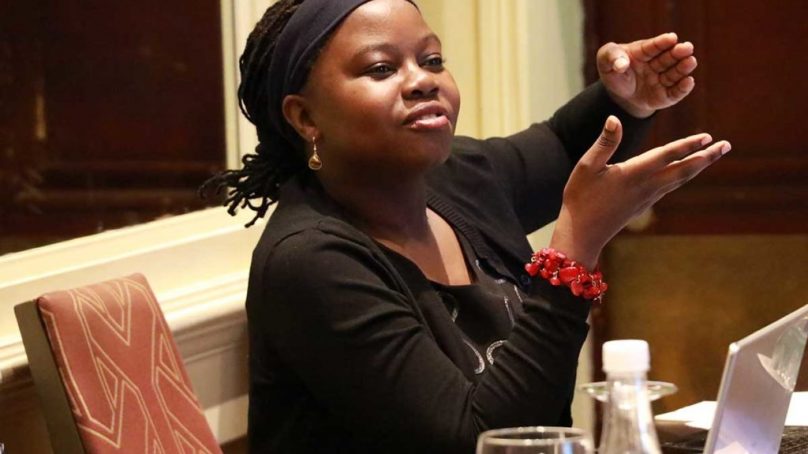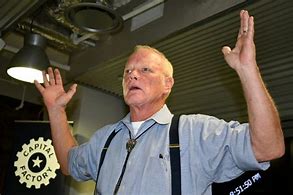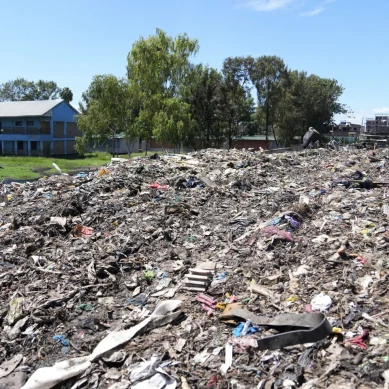
Before writing this article, I wanted to know if the University of Dar-es-Salaam and the University of Nairobi (both of which were my universities the early 1970s and early 1980s respectively, had retirement benefits schemes like Makerere University has – MURBS.
I found nothing for the University of Dar-es-Salaam. However, I found that the University of Nairobi had a pensions scheme established under a trust deed dated June 1, 2007 and registered under the Kenya Retirement Benefits Authority (RBA) to provide retirement benefits for permanent and pensionable staff of the university as UNRBS.
So, that scheme was established two years before the one of Makerere University was. Whereas the regulator of UNRBS was established much earlier on November 20, 1997, Uganda Retirement Benefits Regulatory Authority (URBRA) was established by an Act of Parliament No.15 of 2011 and enacted on September 26.
MURBS stands for Makerere University Retirement Benefits Scheme. It was formed when academic staff of Makerere University were disenchanted with the way the university administration was handling their savings with the National Social Security Fund (NSSF) – the government-run social security fund since 1985 when it was established and tasked with ensuring that all workers in Uganda who save with it enjoy a socially and economically dignified retirement once they leave government service.
Accordingly, the mission of MURBS is “Safeguarding the members social security funds for a dignified retirement”. Its vision is “A centre of excellence transforming members’ lives for a fulfilling retirement journey”.
The well-designed MURBS website states, “MURBS was established by Makerere University under an irrevocable trust effective April 1, 2009 to provide retirement benefits to employees of Makerere University. MURBS is a Mandatory Employer-based Scheme licensed by the Uganda Retirement Benefits Regulatory Authority (License No.RBS 0005)”. So unlike UNRBS, MURBS does not discriminate between permanent and pensionable and other staff. It is all-embracing.
As at June 30, 2022, MURBS had a total membership of 7,162, out of which 4,069 were deferred members. As of June 30, 2023, MURBS had a fund value of Ush352 billion ($90 million) and had paid out Ush19 billion ($4.85 million) as benefits. The last time I checked it had 3,041 active members.
Unlike NSSF, which, over the last decade or so, has been overladen with financial scandals involving stealing and misuse of members’ money, or investing it in often ill-fated projects in which some state actors have vested interests, MURBS is not a scandal-constrained scheme.
While the Boards of NSSF have been routinely removed not for completing their terms effectively, but for misdemeanour, MURBS board of trustees is changed only when it completes its term of service.
The board of trustees is the highest authority in MURBS, and it works through three standing committees that are supported by co-opted members with technical expertise. These are the investment committee, finance and administration committee, and the audit committee. It is subserved by an efficient secretariat consisting of an all-female team, namely: Ms Susan Khaisa (principal pensions officer), Ms Juliet Nabukeera (assistant principal pensions officer and general administration), Ms Julian Marembo (assistant principal pensions officer finance and investment administration), Ms Rhona Asingwire (office administrator) and Ms Rebecca Nairuba (pension officer, communication and members services).
The function of the secretariat, which has been judiciously established by the board of trustees, is to assist it in carrying out its fiduciary duties. It is in charge of driving all scheme operations in accordance with board’s strategy while interacting with all entities in line with the boards policy. The secretariat employees work full-time and serve fiduciaries to undertake responsibilities borne by the Trustees.
In my view the secretariat is doing a good job. Indeed, on November 1, 2023, during the presentation of the 2022/2023 performance of MURBS on behalf of the Chairperson, Dr Elizabeth Patricia Nansubuga, the secretary board of trustees, Dr Godwin Kakuba, announced that on June 2021, MURBS became the first mandatory employer-based scheme in Uganda. This was a great milestone in the employer-employee coexistence for Makerere University.
I am not sure if there are similar schemes elsewhere in East Africa. If not Makerere is the inventor of the “mandatory-based scheme” in East Africa.
According to Mr Rogers Lubega who represented the chief executive officer of the Uganda Retirement Benefits Regulatory Authority (URBRA), which was established almost simultaneously with MURBS, at the presentation of the 2022/2023 performance of MURBS, the Makerere University Retirement Benefits Scheme is one of those schemes that have really implemented the regulations of retirement benefits.
“The controls put in place by this scheme can actually show you that they are moving in the right direction so thank you so much Board” commended Mr Lubega. He also reported that Uganda currently has UGX 20.56 trillion worth of assets under management in the retirement benefits sector.
Simultaneously, the secretary of board of trustees of MURBS reported some good news. He announced that the board had introduced the “midterm” access by members to 12 per cent of their accrued benefits, provided they are at least 45 years old and have saved with the Scheme for at least ten years. He, however, cautioned that whereas members were entitled to mid-term access of their funds, it had long-term effects on fund value and return on investment of their cumulative retirement benefits. He added that, in five years the scheme had moved from no one holding benefits above Ush250 million ($63,775) to having 270 members holding benefits above Ush250 million ($63,775.00) with five of them being above Ush400 million ($102,040) as of June 30, 2023…
The scheme strives to move more members from the lower bands to the upper bands by ensuring timely collection and prudent investment of their contributions.
This is the story of a functionally effective scheme. The board of trustees and secretariat of MURBS need to be appreciated by members – both retired and continuing in the service of Makerere University. I am happy to be associated with a scheme that cares for its members’ future and continuing retirement. I learnt that the scheme can even give members loans for houses. Housing is an area that is critical. Many members used to retire to nowhere. And as I will show later on, having no house on retirement has sent many retirees to death earlier than would otherwise be the case.
Some history here will be useful. I was one of the serving members of Makerere University academic staff whose retirement benefits were transferred to MURBS. National Insurance Corporation (NIC) was initially entrusted with staff pensions after the university administration was not happy with NSSF’s handling of the savings of its staff. As stated above MURBS came into being in 2009. MURBS started to manage the social security funds of all staff that retire from Makerere university service. Some of the funds are called In-House Pension Funds. Those are the funds of those whose money was removed from NIC. In-house scheme is run by MURBS separately from the other pension funds. The scheme will soon come to an end.
I was informed by the MURBS secretariat that along the way Makerere University asked the government of Uganda to intervene and help it to pay in-house, pension to its retired staff, and government agreed. Government, reportedly, pays into the MURBs bank account the claims of affected retirees on a quarterly manner. If government delays to pay on time, which can be the case, MURBS does not use the funds of retirees who are not on the in-house pension scheme to pay those that are. It is as mechanical as that. We have sometimes blamed MURBS for not paying us our dues on time, but it is beyond its control. It only pays when government releases the funds. The problem is the money is paid in meaningless amounts, which cannot be meaningfully invested by the retirees to add value to their lives.
For a number of years, we were not receiving any of our money from MURBS, because the University did not have the capacity to pay into the MURBS account; the reason it asked government to step in. I have learnt from the proceedings of the November 1, 2023 presentation of 2022/2023 performance of MURBS that the University has been consistent and persistent in releasing workers’ savings and its own contributions to MURBS. The University must be commended.
I retired from Makerere University service in 2009, and have therefore survived death for 15 years now. My wife retired from Makerere University service in 2013 and became immediately hooked to the In-house pension scheme. So, for her she has survived death for 11 years now. However, very many of our colleagues who retire from university service have not been so lucky. They have died within the first five years of their retirement. I am not sure if MURBS and Makerere University are represented at every burial of these former workers of the university. Otherwise, it would be socially befitting if they were represented.
This article is titled “It is not MURBS killing the retirees of Makerere University, Uganda”. A casual reader may immediately conclude that all retirees of Makerere University die because of the way MURBS relates to them technically rather than socially. That is only partly true. There are many reasons why many retirees die in the first five years of their retirement.
Retirees are destined to die, just like all people are. The only difference between the colonial times and today is that the old and elderly of those days were dying at a lower rate than is the case today.
Today, the sociocultural and socioeconomic environment of Uganda is not friendly to the old and the young. Many retirees have entered the wider society when the extended family system, which used to provide social and economic security to the old and elderly is collapsed, and government’s preferred economic models do not favour the old and elderly
Many retirees never plan for their retirement. They are shocked when they are told they have to retire. They don’t even want to leave the official housing units of the university.
Many retirees never planned their families. They got babies in old age. At 60 when they retire, they still have children to pay fees for, provide all their necessities and ensure their health. It is stressing for them. Pressure and heart strokes kill them.
Many retirees do not have alternative sources of income. They have to depend on their savings with MURBS. If it does not come on time, they develop health complications such as pressure and heart strokes.
Many retirees having not built houses in their rural areas have no opportunity to settle in their ancestral lands. They stay in urban areas stressing their children or relatives whose capacity to look after them is increasingly plummeting with proliferating poverty.
Those retirees who have built houses in cities and towns find they have to pay for water and electricity yet they no longer have monthly incomes.
Some retirees to make ends meet have decided to take loans from microfinance institutions, which have ended up stealing even the little they may have saved by other means. Out of the university they come face to face with the realism that government has no clear policy regarding the old and elderly. They get frustrated when even their children and relatives ignore or abandon them.
Many retirees have failed to pay back the loans they got from banks when they were still workers of the university. The banks may have confiscated some of their properties, perhaps houses, perhaps land.
Those retirees who decide to settle in the villages find they are strangers. Those who knew them have passed on and now those they have to interact with are young people whose expectations and behaviour do not rhyme with theirs. Besides, the retirees had become asocial and are now required to attend every burial and traditional cultural activities, which they begin to feel are a burden.
MURBs only manages the savings of the retirees but has no social scheme to prepare them for retirement. Neither has MURBS have social outreach for the retirees. The retirees are virtually estranged from MURBS and the University as much as they are strangers outside the university.
Farming is a good avenue for retirees to fit in the environment outside the university but many retirees have no experience in farming by the time they retire. Many of them are inactive in society although they might have been active in demanding incremental to their salaries and wages. They find themselves ignored by society and, environmentally speaking, manifest like pollutants.
During this era of land grabbing by people previously integral to the nomadic pastoral energy system, many retirees who decided to settle in their rural areas are losing their livelihoods and future to the land grabbers.
Many former knowledge workers take on new academic responsibilities at the many private universities where they are paid peanuts but are expected to work as efficiently as they did at Makerere university when they were younger. They end up frustrated and stressed. Death knocks at their doors.
Many university workers do not value the institution of marriage and prefer lonely lives. Academics in particular may marry but fail to balance family life with academic life and so their marriages tend to collapse. They become estranged from their wives and children and vice versa and live as strangers under one roof. If they retire when the situation for them is like this, they enter retirement as lonely individuals. There is nothing that kills retirees faster than loneliness.
Retirees who are adequately integrated in the digital culture find social media a good weapon against loneliness but they are extremely few. When you are in a university which stresses academicism and scholasticism, the digital culture is as remote from you as is traditional culture.
Last but not least, many universities do not put God first in their lives. Ignorance of the fact that all our lives belong to God as did the lives of our ancestors is what retirees go with in retirement. Without God they are vulnerable to all sorts of challenges, problems and issues, which they cannot humanly deal with. So, death comes early.
Therefore, it is not true that MURBS is killing the former workers of Makerere University. Most of the reasons why former Makerere University workers die early are self-originating. However, MURBS is not a social institution but is in a way a financial institution as much as it is a social security fund.
MURBS can use the killers of the retirees of Makerere University listed in this article to become a social partner of the retirees of Makerere University. Just as it is investing in money making ventures, it can invest in the social security of the retiree. It is highly recommended that MURBS invests in Social Outreach for Retirees of Makerere University (SORMU). Life of a retiree is not just economic.
For God and My Country.
- A Tell report / By Prof Oweyegha-Afunaduula, a former professor in the Department of Environmental Sciences of the Makerere University, Uganda











